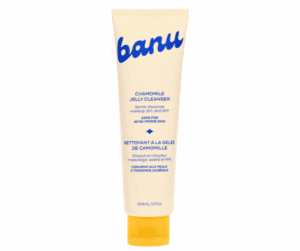For people managing blood sugar, the spotlight has often been on GLP-1 medications such as Ozempic and Mounjaro. But recently, many are turning to Berberine, a natural plant compound, and asking if it could be the “nature’s Ozempic.”
What is Berberine?
Berberine is a bioactive compound found in several plants, including barberry, goldenseal, and Oregon grape. For centuries, it’s been used in traditional medicine. Today, research supports its effectiveness in regulating blood sugar, supporting heart health, and improving metabolism.
How Berberine Helps Lower Blood Sugar
One of the biggest reasons Berberine is gaining attention is its ability to regulate healthy blood sugar levels. It works by:
- ✔️ Activating AMPK (adenosine monophosphate-activated protein kinase), also called the “metabolic master switch”
- ✔️ Improving insulin sensitivity
- ✔️ Slowing down sugar production in the liver
- ✔️ Helping the body use glucose more effectively
These effects mimic some of the ways GLP-1 medications work — leading many to consider Berberine a natural alternative.
Additional Health Benefits of Berberine
While lowering blood sugar is its biggest claim to fame, Berberine offers a range of other benefits:
- ✔️ Increases energy levels by improving how the body converts food into fuel
- ✔️ Supports cardiovascular health by reducing cholesterol and triglycerides
- ✔️ Boosts the immune system through its anti-inflammatory and antioxidant properties
Why People Are Calling It “Nature’s Ozempic”
Across social media and health forums, people are sharing personal stories of success with Berberine. Many report:
- Noticeable drops in blood sugar levels after meals
- Better energy throughout the day
- Modest weight loss benefits when combined with diet and exercise
- Improvements in cholesterol numbers at routine doctor visits
While results vary, the buzz has made Berberine one of the most talked-about natural supplements of the year.
Berberine vs. GLP-1 Medications: What You Need to Know
- GLP-1 medications are prescription drugs with clinically proven effects but may come with side effects like nausea, digestive issues, or high cost.
- Berberine is available as an over-the-counter supplement, generally well-tolerated, and significantly more affordable.
- Always consult your healthcare provider before replacing or combining Berberine with prescription medications.
Is Berberine Right for You?
Berberine shows incredible promise as a natural, affordable way to regulate blood sugar and improve overall health. While it may not replace GLP-1 medications for everyone, many people are finding it to be a helpful, effective addition to their wellness routine.
If you’re looking for a plant-based, science-backed supplement to support healthy blood sugar, Berberine is worth discussing with your doctor.
Frequently Asked Questions About Berberine
Q: Does Berberine really work like Ozempic?
A: Berberine works differently than Ozempic but has some similar effects, such as improving insulin sensitivity and lowering blood sugar. While it may not be as strong as GLP-1 medications, many people find it a helpful natural alternative.
Q: Is Berberine safe to take every day?
A: Most studies suggest Berberine is safe when taken at recommended doses (typically 500 mg, 2–3 times daily). However, it’s important to talk with your doctor, especially if you are taking prescription medications.
Q: Can Berberine help with weight loss?
A: Berberine is not a weight loss pill, but some people experience modest weight loss due to better blood sugar control and improved metabolism.
Q: How long does it take to see results with Berberine?
A: Results vary, but many people report improvements in blood sugar and energy within a few weeks of consistent use.
Q: Where can I buy Berberine?
A: Berberine is widely available online and at health supplement stores. Look for high-quality brands that use third-party testing to ensure purity. GO HERE and Lower Your Blood Sugar with Berberine from Luma Nutrition.








